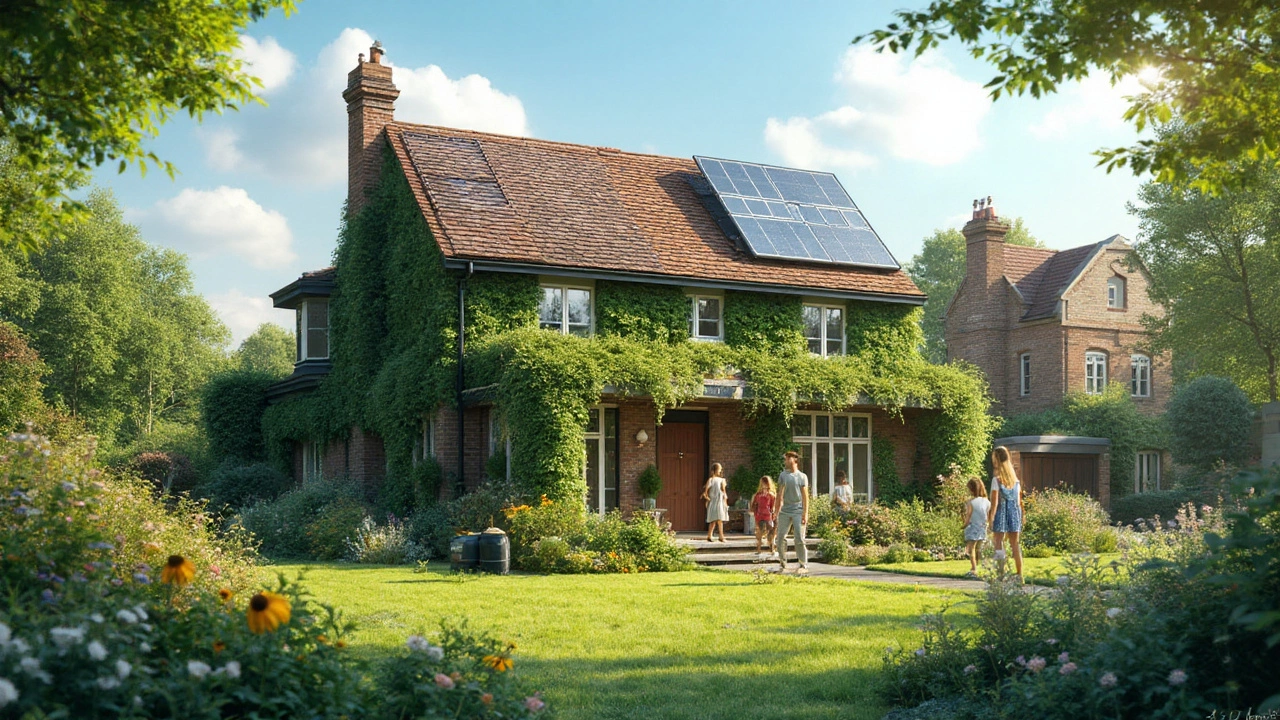
Energy Efficient Homes: Simple Steps to Cut Bills and Help the Planet
If you want lower utility bills and a smaller carbon footprint, you don’t need a massive renovation. Small changes in insulation, lighting, and habits can make a huge difference. Below you’ll find the most effective upgrades and everyday habits that anyone can apply, even in a cozy Loch Ness cottage.
Key Upgrades for Better Efficiency
First, seal the gaps. Drafty windows and doors let warm air escape in winter and let hot air in during summer. Use weather‑stripping or caulk around frames – it’s cheap, quick, and you’ll feel the difference right away.
Next, upgrade your insulation. If your walls, attic, or loft have thin insulation, add a few extra inches of batts or rolls. In Scotland’s cooler climate, a well‑insulated roof can cut heating costs by up to 30%.
Switch to LED bulbs. LEDs use about 80% less electricity than incandescent bulbs and last ten times longer. Keep a spare pack handy so you can replace any burnt‑out bulbs without hassle.
Install a programmable thermostat. Set it to lower the temperature while you’re out or sleeping, then raise it before you return. Modern thermostats even learn your routine and adjust automatically.
Consider a modern, high‑efficiency boiler or heat pump. While the upfront cost is higher, the long‑term savings on heating and hot water are substantial, especially with low‑temperature radiators common in Highland homes.
If you have enough roof space and sunlight, a small solar PV system can offset part of your electricity use. Even a few panels can power lights and small appliances, reducing the amount you buy from the grid.
Everyday Habits That Cut Energy Use
Turn off lights and appliances when not in use. It sounds obvious, but many people leave TVs or chargers plugged in all day. Use power strips to make it easier – flip the switch and everything goes off.
Wash clothes in cold water whenever possible. Modern detergents work just as well, and heating water accounts for a large share of laundry energy use.
Take shorter showers and install a low‑flow showerhead. Cutting a minute or two off each shower saves both water and the energy needed to heat it.
Load the dishwasher and washing machine only when full. Running half‑empty loads wastes water and electricity.
Use a kettle for boiling water instead of the stove. A kettle heats water faster and uses less energy.
Finally, schedule an energy audit. Many utility companies offer free or low‑cost home assessments. An auditor will point out hidden leaks, recommend specific insulation upgrades, and help you prioritize the most cost‑effective changes.
Putting these upgrades and habits together creates a home that stays warm in winter, cool in summer, and keeps your bills low. You’ll also feel good knowing you’re doing your part for the environment – a win‑win for you and the beautiful Loch Ness landscape you love.
